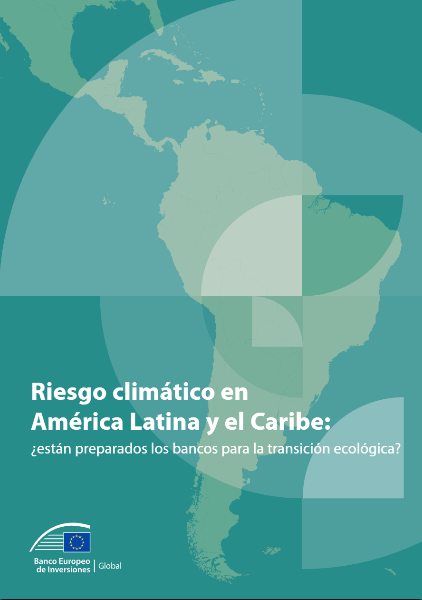
Resumen:En América Latina y el Caribe los efectos del cambio climático son cada día más patentes. En las dos últimas décadas, los países de la región han sufrido hasta 1 350 catástrofes naturales atribuibles al clima, que han afectado a más de 170 millones de personas.Analizamos los riesgos climáticos en América Latina y el Caribe, y ampliamos nuestro análisis para comprender lo que estos riesgos implican para el sector financiero, en particular para los bancos. Concluimos que el riesgo climático físico agregado del sector bancario es más elevado en el Caribe, mientras que para el riesgo de transición el panorama es más homogéneo. Por último, observamos que los flujos de capital para proyectos climáticos en la región de América Latina y el Caribe van con retraso respecto a los de otras regiones del mundo. En un contexto en el que existen unas considerables necesidades de financiación, la comunidad financiera internacional y los bancos públicos de desarrollo tienen un papel fundamental para apoyar las inversiones ecológicas, tanto públicas como privadas, proporcionando financiación flexible a largo plazo a tipos asequibles y compartiendo parte de los riesgos.
Summary:Latin America and the Caribbean are increasingly experiencing the effects of climate change. Over the past two decades, the countries in the region have experienced as many as 1 350 natural disasters attributable to the climate, affecting more than 170 million people. We analysed climate risks in Latin America and the Caribbean, expanding the analysis to understand what these risks imply for the financial sector, particularly for banks. We conclude that the aggregate physical climate risk of the banking sector is the highest in the Caribbean while for transition risk the picture is more homogenous. Finally, we note that capital flows for climate projects in the Latin America and the Caribbean region have been lagging other regions in the world. Against the backdrop of considerable financing needs, the international financial community and public development banks have an important role to play to support both public and private green investments providing long-term, patient funding at affordable rates and sharing part of the risks.
Fecha publicación: 2023
Autor: Banco Europeo de Inversiones
ISBN / ISSN: 978-92-861-5605-2
Link: https://acortar.link/S4yMcJ
Palabras clave: América Latina , cambio climático , Caribe , economía verde , financiación de la UE , gestión de riesgos , institución financiera , política bancaria , riesgo natural , transición económica , transición energética
Keywords: banking policy , Caribbean Islands , climate change , economic transition , energy transition , EU financing , financial institution , green economy , Latin America , natural hazard , risk management
